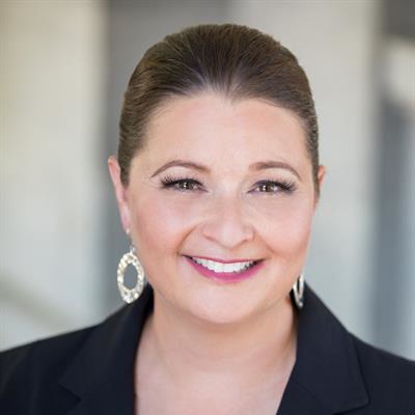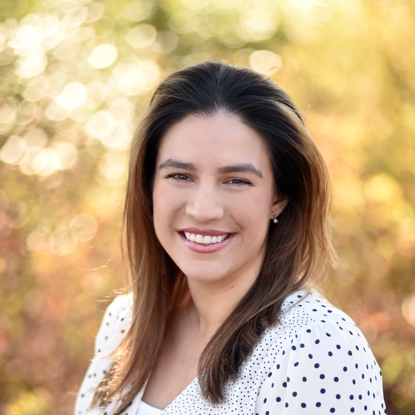
Family Law FAQ
Answers from Our Folsom Family Lawyers
Navigating a complex family matter is stressful enough – when you add in the legal components, it can be extremely overwhelming. If you are feeling in over your head, rest assured that the Law Office of Tiffany L. Andrews, P.C. is here to help. Below, we have answered some common questions about family law, divorce, child welfare law, and estate planning. We hope you will find this information useful as you progress through your case.
If you still have questions after reading our FAQ, please don’t hesitate to contact us. Reach out online or at (916) 794-4576.
Divorce
What is the difference between a divorce and a dissolution?
There is no difference, as these words are used interchangeably and mean the same thing.
What does the word equalization mean in the context of a divorce or legal separation?
It means to ensure each spouse is taking a similar amount of community property and debt, i.e. if Wife is getting $5000 in community property items and Husband is taking $0, then Wife would owe Husband an “equalizing” payment of $2500 to ensure each spouse takes the same value of the community at the end of the divorce or separation. The same is true for debt.
Is the law the same in cases in family law as it relates to children in the child welfare law system?
No, absolutely not. Cases that are brought within the context of a parentage case, legal separation, and/or dissolution are governed by the California Family Code. Cases in the child welfare law system, i.e. juvenile dependency cases, are governed by the California Welfare and Institutions Code.
What can I do if my judgment did not address a piece of community property in my divorce?
The law in California permits a party or parties to return to court to dispose of any property that is considered to be omitted from the prior division of assets. The omitted asset would be equally divided, if it is deemed community property, UNLESS the parties agree to otherwise.
Isn’t having a team of collaborative professionals going to be more expensive than just hiring an attorney for my divorce?
Typically no, as cases that are left unresolved and require a judge to make a decision have to go to an evidentiary hearing. Having an evidentiary hearing can be very expensive for a client far beyond any team of professionals depending on how complex the issues in dispute are.
Child Welfare Law
Can I change a court order I got relating to my children from juvenile dependency proceedings, i.e. cases involving Child Protective Services?
It depends. Orders from a child welfare law case where dependency has been terminated with specific court orders in place are considered final custody orders. To modify these types of orders, the person seeking the modification will need to establish that there has been a significant change in circumstance since the prior orders were made and that the newly requested orders would be in the child’s best interest.
Estate Planning
What’s in an estate plan?
An estate plan normally consists of four main documents: A trust, a will, a Durable Power of Attorney for Financial Management (DPA), and an Advance Health Care Directive (AHCD). A will and trust plan are for after death, and the DPA and AHCD plan are for during life. Every person over the age of 18 should have most – if not all – of these documents in place to plan for the unexpected.
What is the difference between and will and a trust?
Both documents distribute property after a person’s death. However, a trust is considered a probate avoidance tool. A will by itself does not avoid probate.
Why should I get a trust?
The main purpose of a trust is to avoid probate. Probate is a very lengthy, very expensive court process where the courts will supervise the distribution of a person’s estate. This process can take anywhere from 9-18 months to complete, and costs thousands of dollars that are paid from the estate. In California, probate is triggered when a person has assets in their name that value over $150,000. This means that if you own your own home, this asset will likely trigger probate. Placing assets like your home, financial accounts, and other valuable personal property in a trust will prevent probate from occurring. This means your beneficiaries will receive their inheritances much faster, and it will not be diminished by the cost of probate
Meet The Team
We Understand the Importance of Trust in the Family Law Attorney-Client Relationship
-
“Got my life back, so awesome!”
This lady knows her stuff! She is quick and on top of the case at hand. When we were waiting for my very late (now) ex to show up for court, she was furiously working and we got the case settled, done, over! She also tells it like it is. I learned so much from her and her very courteous staff. If I was freaking out a bit, they never lost their cool. Thank you so much for everything!- Lyn -
“International Service of Process and Divorce Guidance”
Tiffany was very fast to respond, she was direct and very very knowledgeable. She took the time to quickly understand my situation and also advise on the correct process surrounding serving documents overseas. I was very satisfied with her level of prompt and above and beyond guidance. Thank you.- Stefan -
“Peace of Mind”
Tiffany is perfect! She made herself available to me right away! She is a great listener!! I would recommend her to anyone going through custody battles and divorce.- LaCrisha -
“Would Recommend to Anyone”
I cannot say enough good things about Tiffany Andrews. I had a previous attorney who completely messed up my case and the work Tiffany was able to do was amazing. She is efficient, honest, understanding, and incredibly intelligent. I would recommend her to anyone who wants a smart, educated, kind attorney who genuinely cares and can get results that you want. Truly impressed and grateful I found her!- Nicole -
“Effective and Professional Representation”
When an already difficult case took an unexpected turn, my Family Law attorney suggested another member of her team take on this new aspect of my case. As the issues of the case unfolded I was very relieved that Tiffany had been brought on to handle this troubling matter. Her professional confidence provided a sense of security while her familiarity with the complex issues kept me reassured. I am extremely happy with the final outcome of the issue and would confidently recommend Ms. Andrews for quality representation.- George -
“I would highly recommend her to anyone!”
It is true that divorce is the most trying time anyone will ever experience. Having said that, Tiffany has been an ally in the onslaught of negativity. My case has been VERY complicated and has involved domestic violence. She has worked to affect a positive outcome for me and my son. While this case is not over, and the outcome is still uncertain, I am certain that I am in the best hands possible with her as my attorney. I would highly recommend her to anyone!- Previous Client -
“Very Attentive Attorney”
Once Tiffany took on my case, she was on top of every detail. She was always responsive to my questions and got back to me in a timely manner. She was well informed about opposing counsel and helped lead me in very strategic conversations to resolve the matter quickly and to my advantage.- Mary -
“The BEST”
We have been her clients for about 7 years now. We first hired her when she was working with another law firm. We were so impressed and pleased with her that we followed her when she started her own law firm. She is very kind, understanding, and has always advised us in the right direction. She's helped us with multiple cases and is always on top of it. We definitely couldn't have done it without her help. We highly recommend her. She also has a great staff. They are always quick to respond and very helpful.- Enrik




